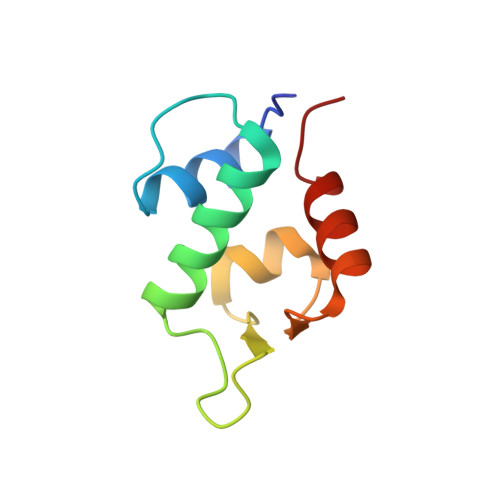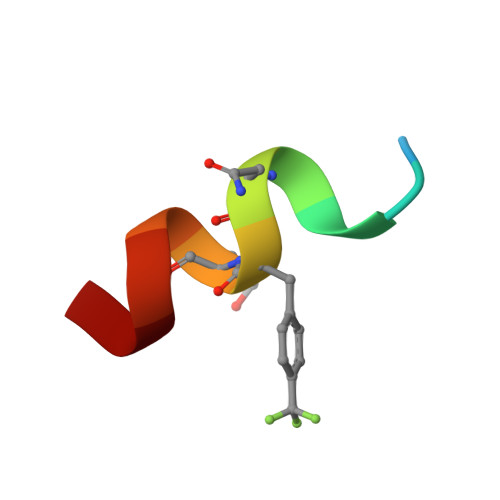An Ultrahigh Affinity d-Peptide Antagonist Of MDM2.
Zhan, C., Zhao, L., Wei, X., Wu, X., Chen, X., Yuan, W., Lu, W.Y., Pazgier, M., Lu, W.(2012) J Med Chem 55: 6237-6241
- PubMed: 22694121
- DOI: https://doi.org/10.1021/jm3005465
- Primary Citation of Related Structures:
3TPX - PubMed Abstract:
The oncoprotein MDM2 negatively regulates the activity and stability of the p53 tumor suppressor and is an important molecular target for anticancer therapy. Aided by mirror image phage display and native chemical ligation, we have previously discovered several proteolysis-resistant duodecimal d-peptide antagonists of MDM2, termed (D)PMI-α, β, γ. The prototypic d-peptide inhibitor (D)PMI-α binds ((25-109))MDM2 at an affinity of 220 nM and kills tumor cells in vitro and inhibits tumor growth in vivo by reactivating the p53 pathway. Herein, we report the design of a superactive d-peptide antagonist of MDM2, termed (D)PMI-δ, of which the binding affinity for ((25-109))MDM2 has been improved over (D)PMI-α by 3 orders of magnitude (K(d) = 220 pM). X-ray crystallographic studies validate (D)PMI-δ as an exceedingly potent inhibitor of the p53-MDM2 interaction, promising to be a highly attractive lead drug candidate for anticancer therapeutic development.
- Institute of Human Virology & Department of Biochemistry and Molecular Biology, University of Maryland School of Medicine, Baltimore, MD 21201, USA.
Organizational Affiliation:





















